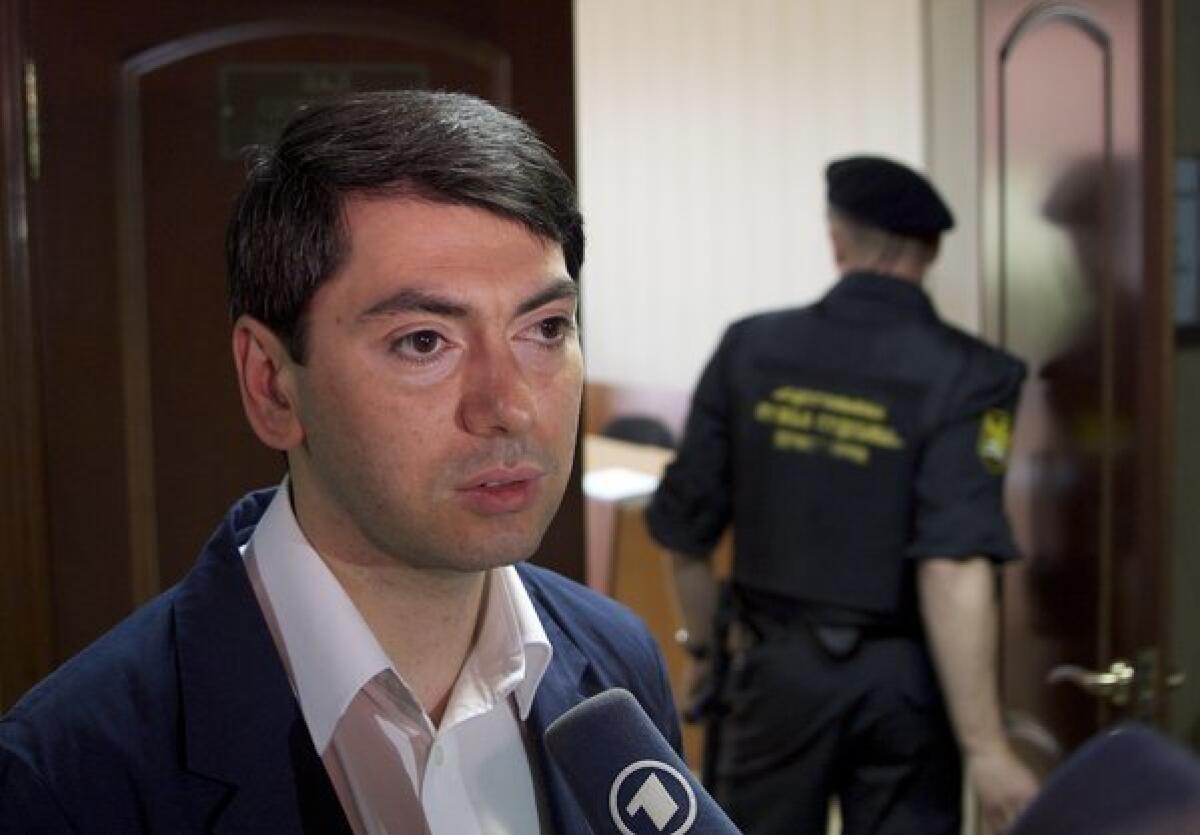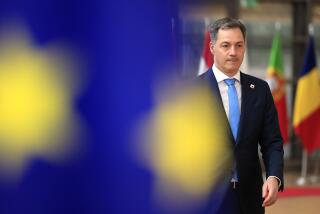Russia suspends independent election monitoring group

MOSCOW — Russia’s Justice Ministry on Wednesday suspended a prominent independent election monitoring organization for its refusal to register as a foreign agent as required by the Kremlin.
The monitoring agency, Golos, and thousands of other nongovernment organizations oppose the law requiring groups that receive foreign funding to register as foreign agents, saying it would make them seem like spies.
Golos, which received a six-month suspension, was among the organizations that reported voting irregularities in a parliamentary election in December 2011 and in a presidential election in March 2012. After Vladimir Putin was elected to a third term as Russian president, new government rules included the designation for some organizations as foreign agents.
Grigory Melkonyants, deputy chief of Golos, said he was not surprised by the suspension given that the organization had already been fined this year and that authorities had been meticulously scrutinizing its activities.
“The Kremlin is continuing its persecution of NGOs in its all-out campaign of cracking down on the opposition,” Melkonyants said in an interview. “We are not going to give up so easily and we will register a new organization as soon as we can.”
He said Golos voluntarily stopped taking foreign funding last year to avoid prosecution but that authorities took advantage of a monetary award the organization won recently to declare it in violation of the law.
Melkonyants said the Kremlin wants to prevent Golos from monitoring the Moscow mayoral and regional gubernatorial elections in September. Kremlin-backed candidates do not have a sure footing and are not likely to convincingly win their races without ballot-box stuffing, which Golos has proved to be very good at registering, he said.
Alexei Simonov, head of the Glasnost Foundation, said the law was absurd and that for any nongovernmental agency to accept a label that would make it seem suspicious would amount to publicly whipping itself.
“The Kremlin knew no one would obey that law, which would make all NGOs vulnerable,” he said.
ALSO:
Nelson Mandela receiving prayers for ‘a peaceful, perfect end’
Russian lawmakers suggest U.S. is violating Snowden’s human rights
Riots in China’s northwest leave 27 dead; mobs attack police station
sergei.loiko@latimes.com
More to Read
Start your day right
Sign up for Essential California for news, features and recommendations from the L.A. Times and beyond in your inbox six days a week.
You may occasionally receive promotional content from the Los Angeles Times.






